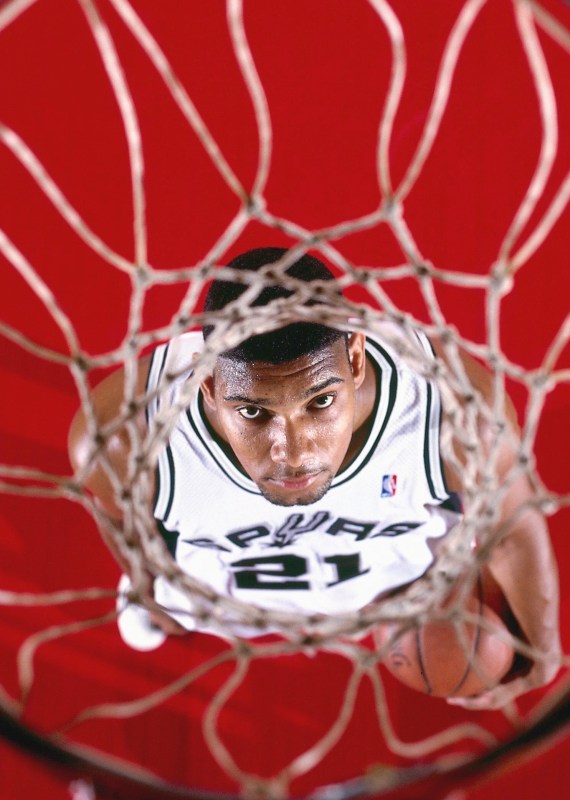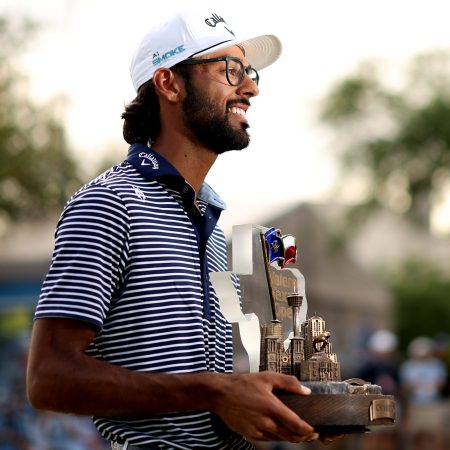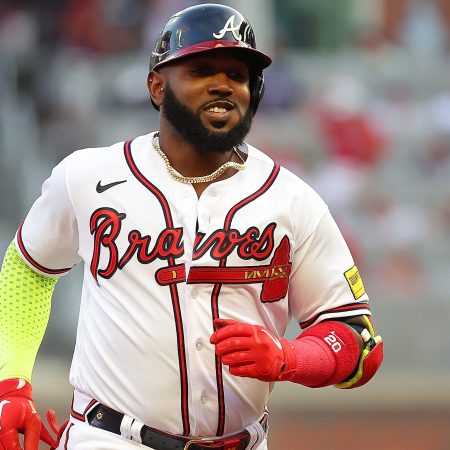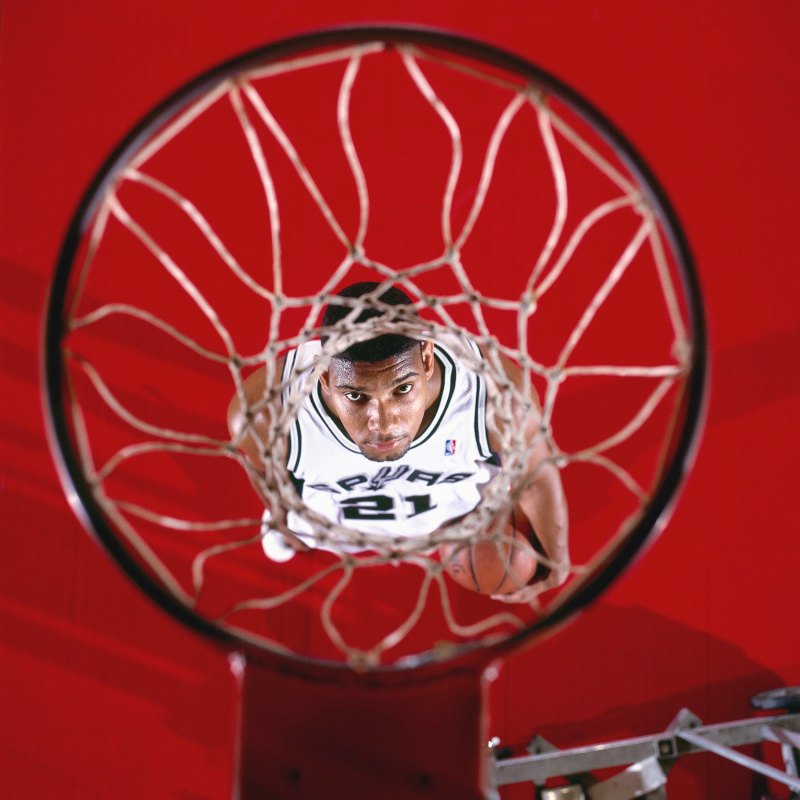
It can be argued that Tim Duncan is the best draft pick in NBA history. It goes beyond titles (Duncan won five) and MVPs (two regular season and three in the Finals). Over his 19-year career, Duncan never played fewer than 50 games (he did that in 1998-99, when he started every game in the strike-shortened season) and his Spurs never missed the playoffs. By choosing Duncan, San Antonio brought themselves nearly two decades of uninterrupted, controversy-free success, entering each season knowing they could count on Timmy.
An intensely private man, here’s a quick look at the just retired future Hall of Famer who has often been overlooked and has no problem with that.
1976: Duncan is born in the U.S Virgin Islands.
1989: Hurricane Hugo destroys Duncan’s local pool, forcing Duncan to give up on his first passion, swimming, and start playing organized basketball.

1994: Tim Duncan completes his freshman year at Wake Forest, averaging 9.8 points, 9.6 rebounds, and 3.76 blocks. Arguably, he would have already been the number one draft pick in the NBA had he decided to turn pro. Instead, Duncan plays four years at Wake Forest. (He promised his late mother he would graduate college.)
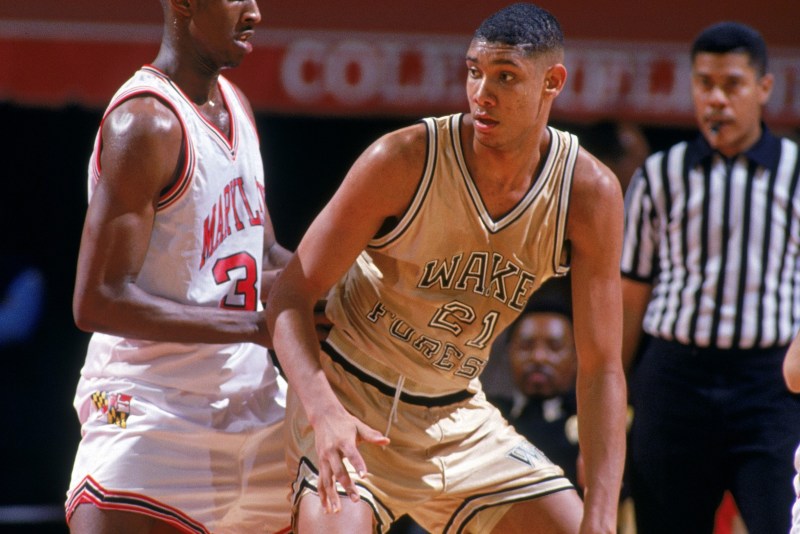
1997: As a senior, Duncan averages 20.8 points and wins a variety of Player of the Year Awards. He goes #1 in the NBA Draft, during what is otherwise one of the weakest classes in recent NBA history. (#2 pick: Keith Van Horn; only two other players go on to make even a single All-Star team.)
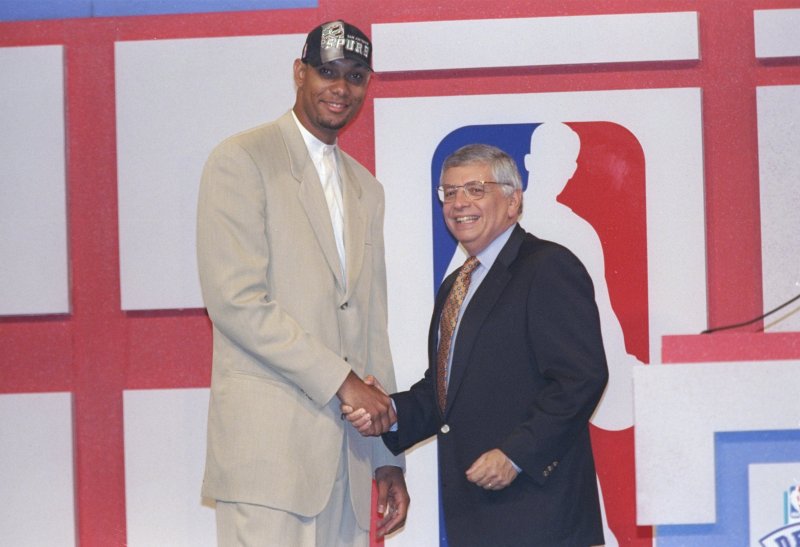
1998: Tim Duncan is named Rookie of the Year after averaging 21.1 points, 11.9 rebounds, and 2.5 blocks. He also makes the All-Rookie, All-Star, All-NBA, and All-Defense teams.
1999: In just his second season, the Spurs win the first title of Duncan’s career. Duncan earns the Finals MVP. Key teammates include the future Hall of Fame center David “The Admiral” Robinson.
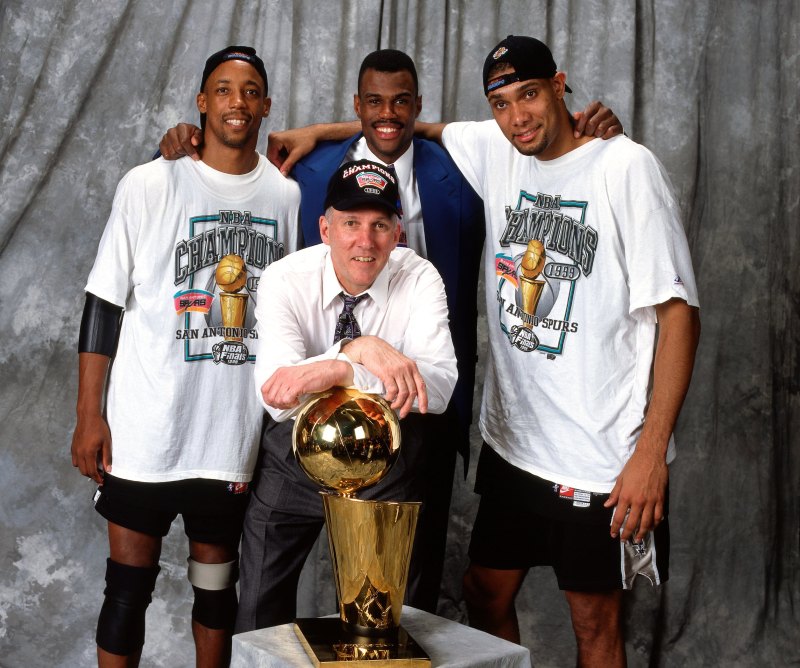
2002: Duncan wins his first regular season MVP.
2003: Duncan’s second title, second Finals MVP, and second regular season MVP. His teammates include Robinson (in his final season) and a young French point guard named Tony Parker.
2004: Duncan plays on (by U.S. standards) a disastrous Olympic team that settles for bronze. Duncan never again plays in the Olympics.
2005: Duncan wins his third title and third Finals MVP. Key teammates include Parker and the fearless Argentine guard Manu Ginobili.
2006: Duncan achieves an unexpected cult stardom, as The Onion runs dozens of articles satirizing his seemingly emotionless play. Classic headlines include: “Tim Duncan Fires Up Teammates With Calm, Moderated Three-Hour Pep Talk.”

2007: Duncan wins NBA title #4. For the first time, he is not the Finals MVP (the honor goes to Parker). It is also the final regular season in which Duncan will score 20 points or more points, as he lets teammates take more and more shots while he focuses on defense. (Duncan continues to make All-Defense teams through the 2014-15 season.)
2013: The Spurs lose a crushing seven-game series to the Miami Heat, including Ray Allen’s miracle three-pointer to avoid defeat in Game 6. It is the first time Duncan has lost in the Finals and it is speculated it may be time for the Spurs to move on from their older players, including Ginobili and Duncan.
2014: In a rematch with the Heat, Duncan wins his fifth title. Finals MVP Kawhi Leonard emerges as the team’s clear star and, as always, Duncan seems glad just to win.
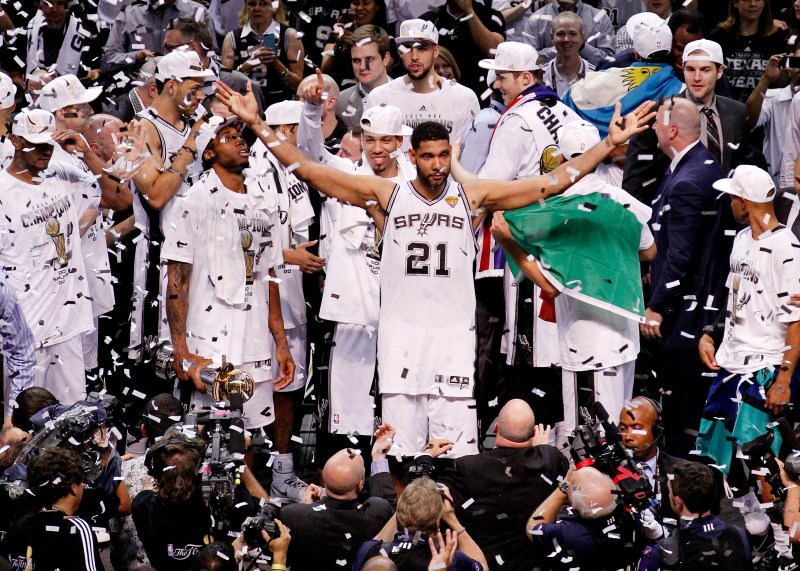
2016: In the same season Kobe Bryant calls it quits with a full-on retirement tour, Duncan refuses to even put out a statement announcing his retirement, leaving his Spurs to spread the news.
The video below contains 10 of the great plays from Duncan’s career: never flashy, the highlights are a reminder of how he managed to be so relentlessly effective for 19 straight seasons: not a movement wasted as on both ends of the court Duncan does exactly what he wants.
Whether you’re looking to get into shape, or just get out of a funk, The Charge has got you covered. Sign up for our new wellness newsletter today.
